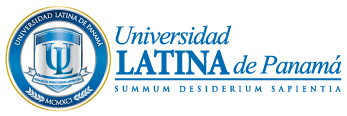Group counseling / Merle M. Ohlsen ; with a foreword by Harry Joseph.
Por: Ohlsen, Merle M .
.
Colaborador(es): Joseph, Harry [foreword] .
.
Editor: New York : Holt, Rinehart and Winston, 1970Descripción: xv, 303 p. ; 22 cm.Materia(s): PSYCHOLOGY| Item type | Current library | Collection | Call number | Copy number | Status | Date due | Barcode |
|---|---|---|---|---|---|---|---|
|
|
Biblioteca Central Rogelio Sinan Fondo general | Colección General | 361.4 / Oh4 / 1970 (Browse shelf(Opens below)) | e.1 | Available | 2019-3708 |
Browsing Biblioteca Central Rogelio Sinan shelves, Shelving location: Fondo general, Collection: Colección General Close shelf browser (Hides shelf browser)
The Counselor.--
Goals for Group Counseling.--
Group Dynamics.--
Therapeutic Forces Within a Counseling Group.--
Establishing a Group.--
Resistance.--
Transference.--
Group counseling provides excellent learning conditions. The advice of an effective group involves the treatment by the group as well as the individual treatment within the group. Counselors should know how the comments and actions of group members influence other members. The selection of youth for group counseling should be based on the type of problem (students with similar problems should not be placed in the same group), preparation for counseling, the impact of the child on other members of the group and their support for parents. Group counseling methods should be modified for use with children in elementary school (fourth, fifth and sixth grades). These groups require more structure and should be more limited in time and number of participants. The counselor plays a more active role, and the support and assistance of teachers and parents is needed outside the group. Role playing is an effective method for this age level. As verbalization is difficult for children of primary school age, more play material is needed. Teachers can use group techniques to motivate learning and provide individuals with an opportunity to relate a special problem through role play. Role playing is an effective method for this age level. As verbalization is difficult for children of primary school age, more play material is needed. Teachers can use group techniques to motivate learning and provide individuals with an opportunity to relate a special problem through role play.
Sede Central Ciencias de la Educación y Desarrollo Licenciatura en Psicología Sin Enfasis
Sede Central Ciencia de la Salud Dr. William C. Gorgas Doctorado en Medicina y Cirugía Sin Enfasis

There are no comments on this title.